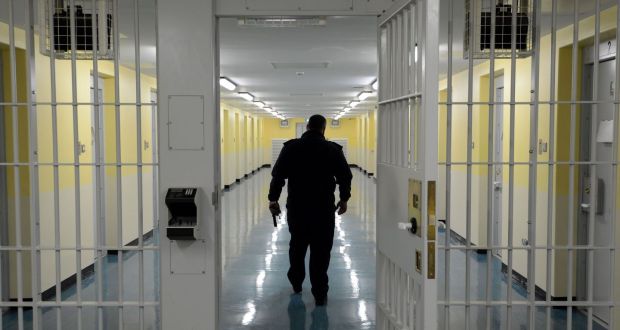
On Prisoner Sunday (12th November), Eoin Carroll, Deputy Director of the JCFJ, delivered a homily at St Francis Xavier Church, Dublin, based on the parable of the ten virgins which emphasises the need for preparation in order to be able to make good decisions.
“Today’s gospel highlights the implications of not being prepared, and the outcome of making poor decisions. The foolish bridesmaids who did not have oil for their lamps were locked out – excluded from the wedding banquet. Unlike the wise bridesmaids, they weren’t prepared. A tough lesson for them; this would have been the highlight of their year!
Today is Prisoner Sunday. Being sent to prison is about as tough a lesson as it gets.
Your liberty has been taken away from you. You don’t have access to family and friends. You’re locked in a cell for fifteen hours per day. In fact, for some who are ‘on protection’, they live in isolation, often in fear, possibly locked in their cell for 23 hours per day.
Yes, people in prison have been sent there for doing something wrong and for making poor decisions. At this point you might be thinking… they deserve to be there, they chose to commit that crime or do that harm.
However, is life really that simple, that black and white? Do you think the bridesmaids set out to be locked out of the wedding banquet? Do you think people in prison set out to be locked up?
Pope Francis, who regularly visits people in prison, said last year “Let me tell you, every time I go into a prison I ask myself, “Why them and not me?” He went on to say “Everyone has the possibility to make mistakes, everyone. All of us have made mistakes.” Francis is empathising with the person in prison and is calling on us all to do so.
In fact, within the context of today’s gospel, he is saying that at times, we are the foolish bridesmaid, we have made poor decisions. That all of us have made mistakes.
Recently I was involved in writing a report on young adults in prison. What struck me about the results of our work was that many young adults kept making poor decisions while in prison, never mind what had lead them to prison. A significant number were being disciplined for not obeying prison rules. It didn’t make sense to me.
As a result, they were being locked in their cells for longer, had less access to family visits, telephone calls and recreation time.. Foolish behaviour, like the bridesmaids. It wasn’t rational! As part of our research we went looking for answers and came across a body of literature called ’emerging adulthood’. The literature helped to explain why young adults, (not just young adults in prison), make poor, unwise decisions.
We learnt that: biological and psychological developments continue until someone is in their mid-twenties; that young adults are not as equipped as older adults to plan ahead, reason, think abstractly or anticipate consequences; that they engage in higher levels of risk-taking as impulse control also does not fully develop until they reach their mid-twenties.
So, where can we find answers? How can we make better decisions?
Today’s reading from the Book of Wisdom provides a clue. “Wisdom is radiant and unfading… and is found by those who seek her.”
Help people find wisdom.
Wisdom provides protection, and helps us make good decisions. It insulates us from harm. Remember, when someone blows out candles on their 18th birthday they may now be an adult, but a wisdom switch has not suddenly been turned on.
The research that I was involved with pointed to the need for young adults in prison to have a personal officer. Someone who can be an advocate, help the young person comprehend the outcomes of their decisions, to believe in them – ultimately, it could be said, to help them in their search for wisdom.”

